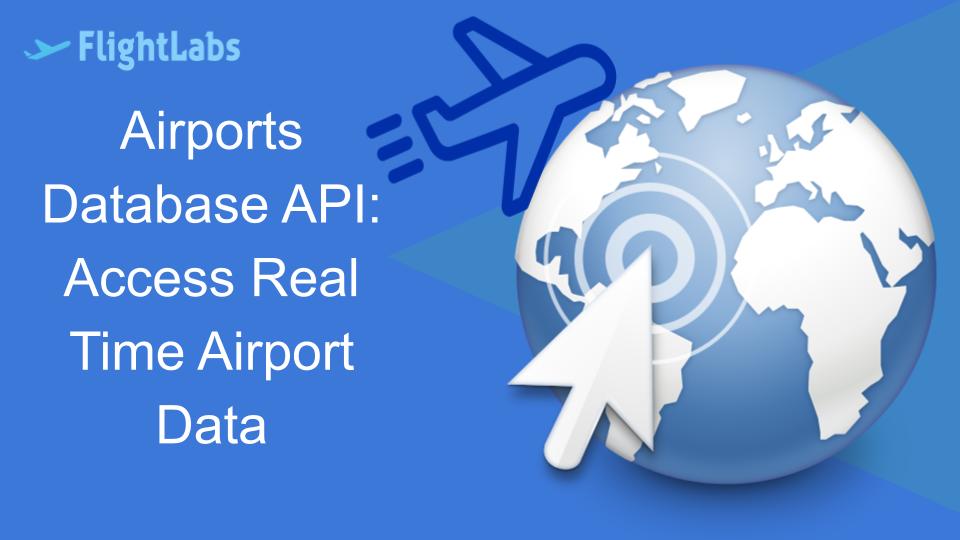Airports Database API: Access Real Time Airport Data

The Airport Schedule API is a sophisticated technology that delivers real-time flight data to aviation sector stakeholders. In today's ever-changing air travel world, having access to accurate flight data is critical for guaranteeing efficient operations and customer pleasure. Airlines, airports, and travel agents rely on such APIs' accurate and timely flight information to effectively manage schedules and ensure a flawless travel experience.
The Airport Schedule API provides real-time flight information and comprehensive flight statistics, enabling precise decision-making in the aviation business. This improves operational efficiency for airlines by optimizing their schedules and resources. Its features, such as the air flight status tracker API and aircraft data API, guarantee a seamless experience for flight management and overall performance.
Operational Efficiency Optimization:
Airport Data enables users to optimize operational efficiency by providing real-time updates on flight schedules, statuses, and operational metrics. Airlines and airports can analyze flight trends, on-time performance, passenger flows, resource utilization, and more to identify areas for improvement and implement strategic initiatives. This data-driven approach enhances operational efficiency, reduces costs, and improves overall service quality.
Efficient Flight Schedule Retrieval:
The Flight Schedule API provides efficient retrieval of flight schedules, allowing developers to access comprehensive information on departure and arrival times, flight durations, layovers, aircraft types, and more. This efficiency streamlines the process of retrieving and displaying accurate flight schedule data within applications.

When deploying FlightLabs, follow these critical steps for a flawless integration:
API Documentation and Resources: To grasp the API's features and capabilities, first extensively research the documentation and accessible resources.
Integration stages for Developers: Next, describe the integration stages for developers, such as authentication procedures and endpoint settings.
Best Practices for Optimal Data Usage Use best practices for optimizing data utilization, such as efficient data retrieval and caching mechanisms.
Key Features of FlightLabs:
FlightLabs provides real-time access to airport schedules, enabling seamless integration with current systems. Its customization possibilities address unique requirements, guaranteeing scalability and future-proofing of operations. It offers a sophisticated solution for efficiently handling flight information, including features such as the air flight status tracker API and the airplane data API.
Use Cases for FlightLabs:
When comparing FlightLabs to other flight data APIs, various considerations come into play. For starters, its performance and dependability stand out, guaranteeing smooth data retrieval and updates. Second, its data quality and breadth are extensive, offering in-depth insights into flight information. Finally, its price and affordability make it an attractive option for organizations and developers looking for high-quality flight data solutions.
Here's a Guide To Help Developers Deploy FlightLabs More efficiently:
API Documentation and Resources: To understand the features and endpoints, first extensively research the API documentation and accessible resources.
Integration Steps for Developers: To integrate the API effortlessly into your application or system, follow the instructions specified in the documentation.
Implement recommended practices for optimizing data utilization, such as caching frequently requested data and using batch queries when appropriate.

The future trends in FlightLabs are exciting and transformative:
AI and Machine Learning Applications: The integration of AI and machine learning algorithms in flight data analysis is revolutionizing decision-making processes.
IoT and Real-Time Data Collection: IoT devices are enhancing real-time data collection, providing accurate and up-to-date information for better insights.
Predictive Analytics for Proactive Strategies: Utilizing predictive analytics enables airlines and aviation companies to adopt proactive strategies, optimizing operations and improving customer experiences.